Publications
Articles, publications, books, tools and multimedia features from the U.S. Institute of Peace provide the latest news, analysis, research findings, practitioner guides and reports, all related to the conflict zones and issues that are at the center of the Institute’s work to prevent and reduce violent conflict.
On the Issues: Pakistan
The resignation of Pakistani president Pervez Musharraf — once a key Washington ally — marks a new stage in the country’s often volatile politics. Institute specialists Alex Thier and Qamar-ul Huda discuss a host of challenges on Pakistan's political scene.
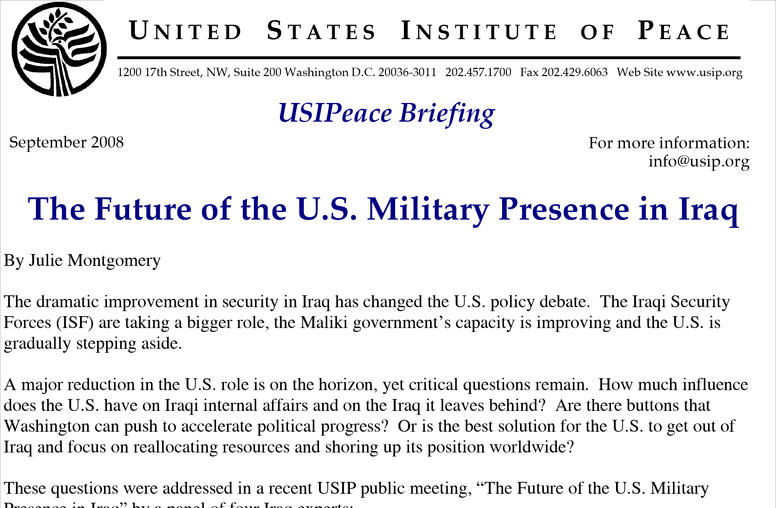
The Future of the U.S. Military Presence in Iraq
A major reduction in the U.S. role in Iraq may be on the horizon. Author Julie Montgomery examines whether Washington should continue to engage or go home, the nature of U.S. leverage on the Iraqi government and related themes.

Reconciliation Strategies in Iraq
A window of opportunity now exists for post-conflict reconstruction in Iraq. In this Special Report, senior reconstruction facilitator David Steele—who has worked on the ground for three years with Iraqis and Provincial Reconstruction Teams—examines effective processes of relationship building and dispute resolution.
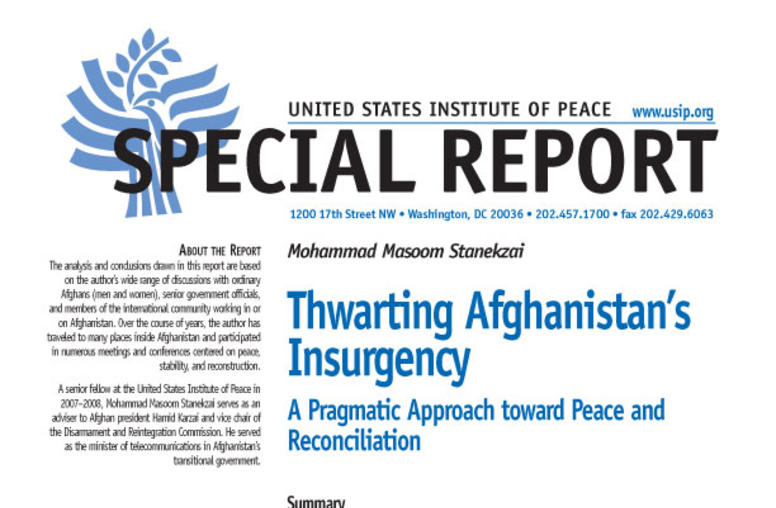
Thwarting Afghanistan’s Insurgency: A Pragmatic Approach toward Peace and Reconciliation
Afghanistan is in a crucial phase of transition. In this report, USIP's first Afghanistan fellow Masoom Stanekzai, who has interviewed a broad spectrum of Afghan senior government officials, members of the international community, and ordinary citizens in the country, shares his recommendations for a pragmatic approach toward peace and reconciliation.
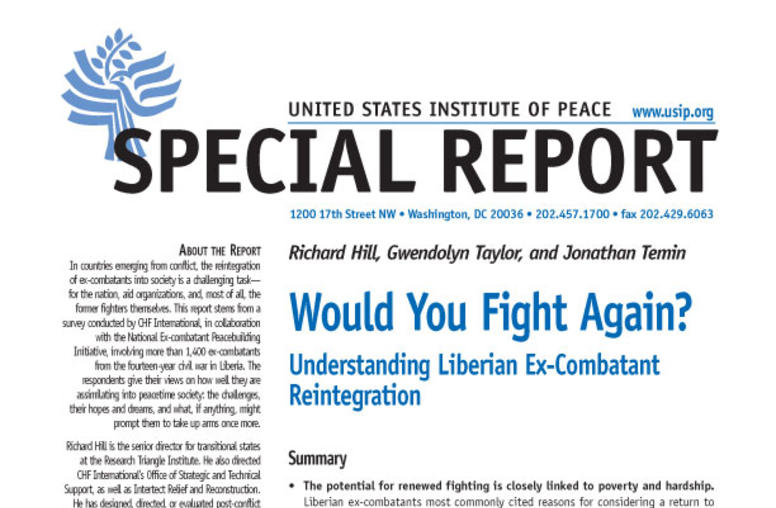
Would You Fight Again?: Understanding Liberian Ex-Combatant Reintegration
Stemming from a survey of more than 1,400 ex-combatants in Liberia's 14-year civil war, this report explores the reasons behind renewed fighting, including poverty, unemployment, peer and family pressure, gender and tribal tensions.
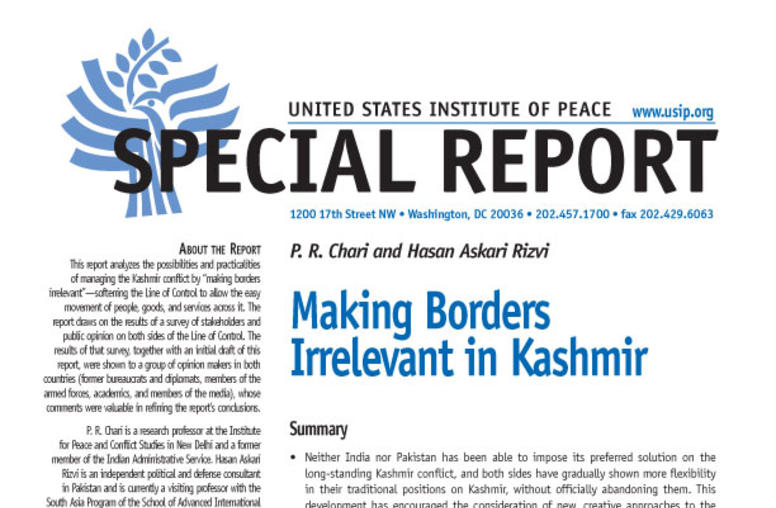
Making Borders Irrelevant in Kashmir
In this report, a duo of experts from India and Pakistan explore the prospect of "making borders irrelevant" in Kashmir through increased movement of people, goods and services across the "Line of Control." The findings draw on the results of a survey of stakeholders and public opinion on both sides.
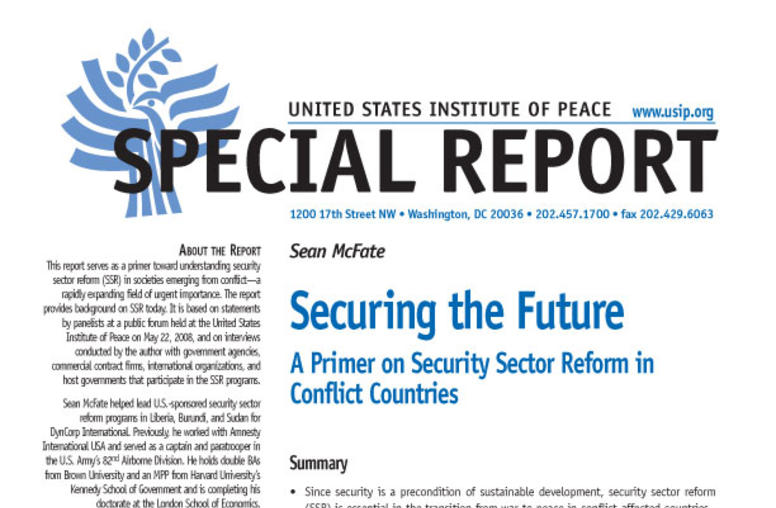
Securing the Future
Security sector reform (SSR) is essential in the transition from war to peace in conflict zones and is a topic of urgent importance. This report discusses definitions of SSR, the field's emergence, and challenges in current SSR implementation, among other topics.
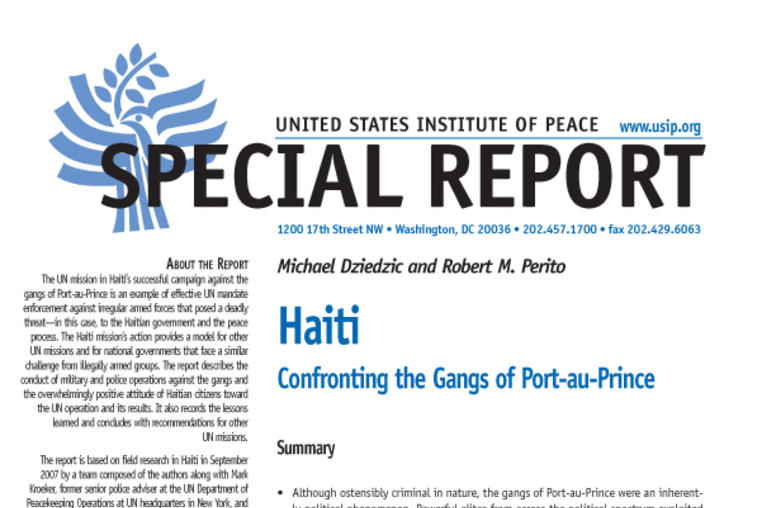
Haiti: Confronting the Gangs of Port-au-Prince
The UN mission in Haiti's successful campaign against the country's gangs set a precedent for future missions. Based on field research, authors Michael Dziedzic and Robert Perito explore the conduct of military and police operations, Haitians' overwhelmingly positive views of the UN intervention and lessons learned.
Public-Private Partnerships in Governance and Economic Reconstruction in Iraq
On August 10th Senior Program Officer Nina Sughrue participated in a one day workshop in Istanbul, Turkey called "Public-Private Partnerships in Governance and Economic Reconstruction in Iraq." The purpose of the joint workshop, which was convened by UNDP Iraq, the UN Economic and Social Commission for Western Asia, the Business Humanitarian Forum, the UN-mandated University for Peace and the U.S. Institute of Peace, was to provide participants with an opportunity to benefit from information...
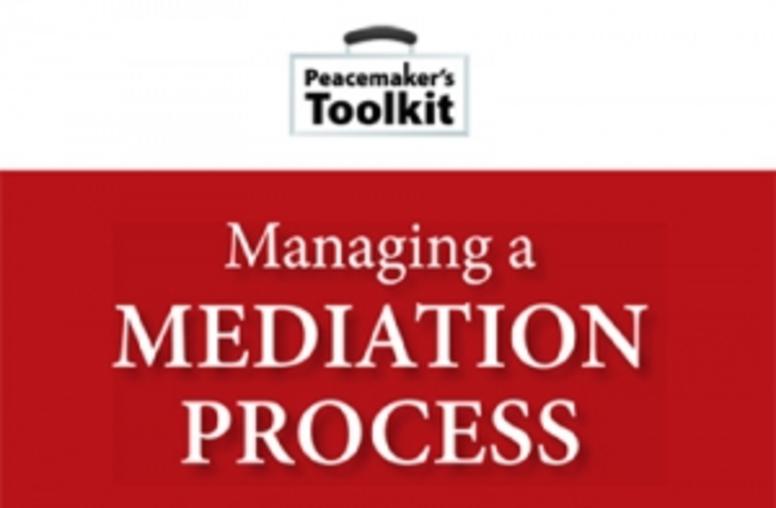
Managing a Mediation Process
Managing the Mediation Process offers an overview of the process of mediating interstate and intrastate conflicts. Each of its six chapters covers a different step in the process, identifying what needs to be done at that step and how best to accomplish it.